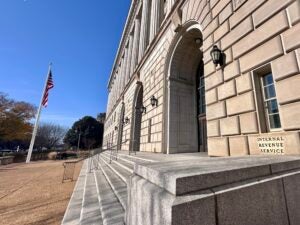If you’ve taken out loans to pay for college, you’re in good company. According to a recent study from the Education Data Initiative, U.S. borrowers carry an average federal student loan debt balance of $37,667. Additionally, the Federal Reserve Bank of St. Louis estimates that total student loan debt in the U.S. exceeds $1.7 trillion. Given that the average borrower owes tens of thousands of dollars in student loan debt, it’s hardly a surprise that many are seeking ways to pay it back faster and save a little money in the process. While several helpful strategies exist, there are some mistakes to avoid when repaying student loans, including the following:
1. Only Making the Minimum Payment
Making your minimum monthly payment is necessary to protect your credit score. However, only making the minimum payment and nothing more will be more costly in the long run because it allows more interest to accrue. Making more than the minimum payment, even by a modest amount each month, is one of the easiest ways to reduce your payments and foster long-term savings. Pay attention to the interest rates of your student loans to determine which makes sense to pay off first. Try to pay down student loans with higher interest rates first to save money. A helpful way to do so is by paying more than the minimum payment or through strategies such as student loan refinancing.
Learn more strategies for paying off your student loans faster.
2. Making Lifelong Payments
“Lifelong” payments happen when a loan’s life (loan term) is extended to keep the monthly payment as low as possible. When you first start chipping away at your balance, the need to keep monthly payments as low as possible by extending the life of the loan is understandable. However, extending your loan’s term can be a costly option.
For instance, doubling the repayment term from 10 to 20 years—and paying the minimum monthly payment (mistake #1 above)—could double the interest that you pay back over the life of a loan. Instead of creating a lifelong repayment plan, consider refinancing your student loans to qualify for a better interest rate potentially. But suppose you need to extend your loan term to maintain a comfortable budget. In that case, you could consider offsetting some of the long-term costs by making higher payments as your income increases.
Learn more about different student loan repayment strategies to find one that works for you.
3. Tapping Into Retirement Accounts to Pay Off Student Loans
It’s common to avoid thinking about your financial future, especially when other payments are due right now. However, it’s important to avoid withdrawing money from your retirement accounts to pay off student loans. Tapping into your IRAs or 401(k)s to pay off student loans depletes money that may be needed later in life, and it also could result in a lower earning potential on your retirement savings. Instead of borrowing from or delaying contributions to retirement accounts to pay student loans, consider how refinancing student loans may create a more manageable, money-saving payment plan. Learn more about managing your 401k and paying off student debt.
4. Delaying or Missing Student Loan Payments
Delaying or missing payments on any type of debt—student loans, credit cards, or other financial commitments—is not a good financial decision and could impact your credit scores and future ability to borrow money. Good credit scores can result in better rates on future loans, so doing everything you can to avoid credit score setbacks is essential. Avoid delaying or missing payments if possible. Consider starting to repay your student loans during college to help reduce your overall interest costs. You may also want to pay more than the monthly minimum payment to improve your debt-to-income ratio, which factors into your credit score. Then when the time comes to refinance student loans or apply for another type of loan, you could receive better terms and interest rates.
5. Not Taking a Tax Deduction for Your Student Loan Interest
The IRS allows student loan borrowers to deduct a portion of their loan interest each tax year. For 2022, the total amount you can deduct is $2,500. If you qualify, claiming this deduction can help you keep more money in your pocket.
To qualify for the student loan interest tax deduction, you’ll need to have taken out a loan to pay for your own education, your spouse’s, or your dependent’s education. Your loan must also be used to pay for qualifying expenses, which may include tuition and fees, room and board, books, or certain supplies, like a laptop.
6. Forgetting to Recertify Your Income-Driven Repayment Plan
If you have a federal student loan with an income-driven repayment (IDR) plan, you need to recertify your income each year. Recertifying your income helps ensure that you can keep your chosen IDR plan. When you recertify, your loan servicer recalculates your monthly payment amount based on the changes to your income.
Borrowers who forget to recertify their income could end up losing the benefits of their IDR plan. For instance, if your monthly payment amount was lower due to the IDR plan you chose, you could end up with a much higher payment—which may be overwhelming if you’re not expecting it.
7. Not Refinancing or Consolidating Student Loans
In certain cases, consolidating or refinancing your loans could save you a significant amount over the long term. When you consolidate or refinance your student loans, you replace your original loan or loans with a new loan—ideally, one that offers a lower interest rate or a better repayment term.
If you’re thinking of going this route, understand that refinancing federal loans with a private lender could result in the loss of certain benefits, like student loan forgiveness. Still, student loan consolidation or refinancing could make sense if you’re able to lower your interest rate. Reducing your rate by a percentage point or more may result in thousands of dollars in savings over the life of your loan.
8. Failing to Update Your Contact Information
Keeping your contact information up-to-date with your loan servicers is essential. Doing so will help ensure you receive your monthly loan statements in a timely manner—and help you avoid any unintentional late payments.
For instance, borrowers often include their student email addresses as part of their contact information with their loan servicers. Doing so could be a mistake, as you won’t necessarily be able to access your student email after you graduate. If your student email is listed as a primary means of contact, update it to your personal email to ensure you keep receiving your statements.
9. Overusing Forbearance
If you’re experiencing a serious financial hardship, student loan forbearance can be a helpful, albeit temporary, solution. When you request loan forbearance, you’re essentially negotiating with your loan servicer to pay a reduced amount or nothing for a set time period.
While temporary relief may sound like the ideal solution if you’re struggling financially, overusing forbearance can be a costly mistake. In almost all cases, interest continues to accrue on your student loans even if your payments are paused or reduced. This means you could end up with a larger loan balance than you started with, resulting in higher payments and interest charges over the long term.
Learn more about the differences between deferment vs. forbearance and whether either may be right for your situation.
10. Not Understanding Student Loan Forgiveness
Beyond President Biden’s recent legislation on student loan forgiveness, several types of federal student loan forgiveness programs exist. For instance, you may be eligible for student loan forgiveness if you work in a qualifying job for a set period or have a certain type of repayment plan.
Understanding the different programs and requirements necessary for student loan forgiveness can help you determine if you’re eligible. And if you are, having your loans forgiven could help you save a significant amount.
Refinancing Your Student Loans with ELFI
Financial responsibility starts with paying your student loans on time each month. Making on-time payments are important to your overall credit score and can be beneficial when you refinance your student loans, as it may lead to better interest rates and terms.
When student loans are refinanced with Education Loan Finance, borrowers are able to make payments greater than the minimum (without penalty), thereby increasing the likelihood of paying off their student loans more quickly and at a lower cost.* For the greatest money-saving potential, always be diligent and disciplined with the repayment of student loans.



